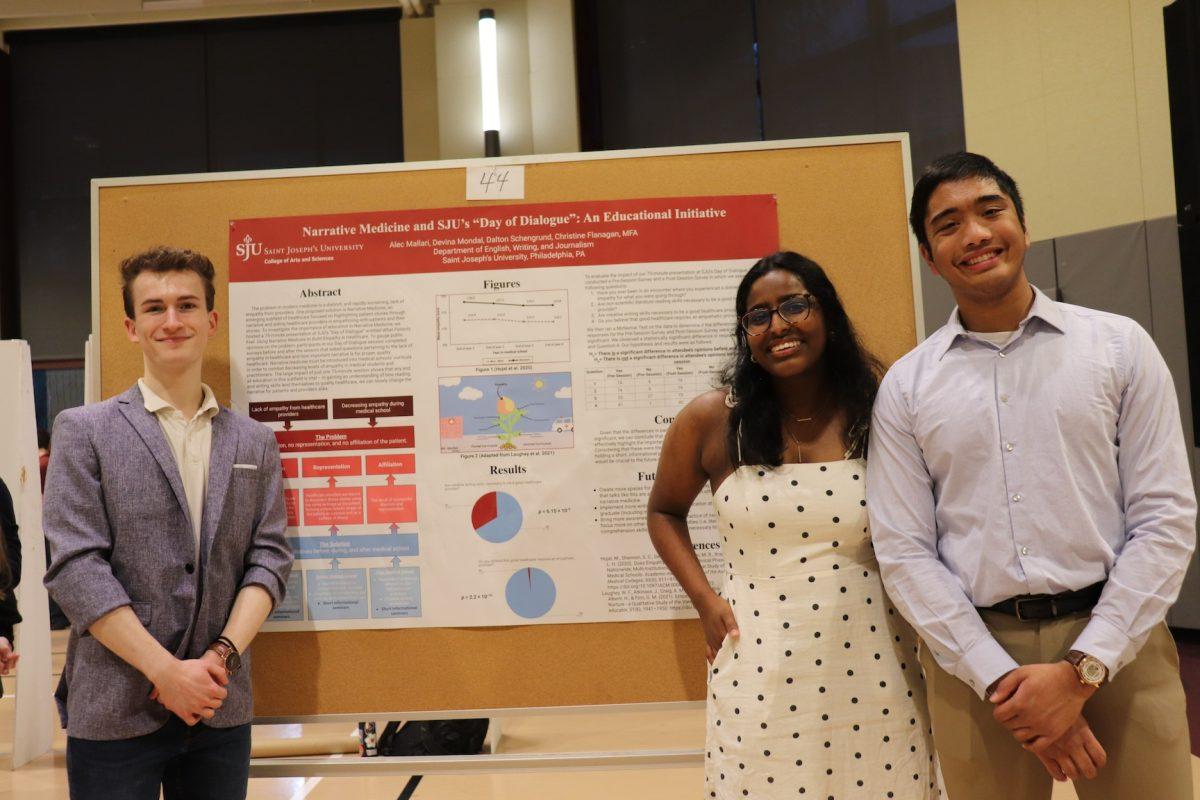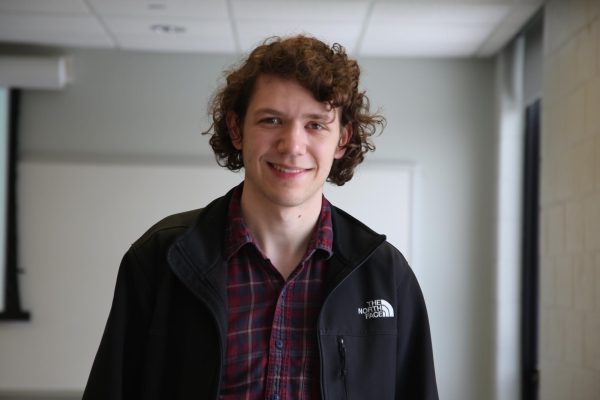The Center for Undergraduate Research (CUR) showcased the research of 278 students and faculty at its 2024 Undergraduate Research Festival April 8-11 on the Hawk Hill and UCity campuses. Student research projects covered multiple disciplines and were showcased on posters, slideshows and through verbal pitches.
Five students summarized their research in brief presentations at the Student Research Talks and Awards.
Among the presenters was biology and environmental science double major Brielle Cruz ’25, who examined the effect that red-eared slider turtles have on native turtle populations in the John Heinz National Wildlife Refuge at Tinicum near Philadelphia.
“I’m digging into the stigma of whether red-eared sliders are really detrimental as non-native species,” Cruz said. “I’m just trying to see if that claim has any substance because there’s no actual scientific evidence or studies that prove red-eared sliders have a negative impact on native turtles.”
Cruz said she gained lots of knowledge about the research process and research methods.
“I enjoy just talking to people about it and just sharing all the knowledge I’ve gained about turtles,” Cruz said.
Roberto Ramos, Ph.D., co-director of CUR, said students gain out-of-classroom experiences through field research, which supplements their classroom learning and exams.
“It makes one reflect on why studying something is important, because it gives context to the state of research and the state of one’s area of expertise,” Ramos said.
According to booklets handed out at the poster session, researchers worked on 154 different projects for this year’s event.
Rashid Elnagieb ’24, a pharmaceutical and healthcare business major, researched the viability of a centralized storage system for electronic health records after watching a short film about healthcare systems in one of his classes.
“In Taiwan, they have a system where everybody has a health card, and it records all of your health care information,” Elnagieb said. “I thought it would be an interesting study to see if such a system would improve patient outcomes in the U.S.”
Julia Lee-Soety, Ph.D., CUR co-director, said it is important that student research is presented so that others may be inspired by it.
“For people that are still thinking about whether they want to do this or not, they could see that [they] could be involved in research too,” Lee-Soety said. “People that do research get to see what other people are doing, what their friends are doing and that students that are outside of their majors and departments are doing research as well.”
Samuel Vizzeswarapu ’24, a biology major and autism studies minor, investigated bias among health care professionals toward patients who are neurodiverse. Vizzeswarapu said he hoped his research would help reduce bias toward people with autism.
“I noticed when I shadowed a bunch of the [medical] students that they are lacking in knowledge of autism, and since I’m going into the field, I care that they are properly informed,” Vizzeswarapu said.
Medical laboratory science major Dalton Schengrund ’25, and biochemistry majors Devina Mondal ’25 and Alec Mallari ’25, performed research based on a presentation they held at St. Joe’s annual Day of Dialogue in 2024, on how narrative medicine enhances empathy in healthcare settings.
“Narrative medicine is a thought framework to really encourage empathy in healthcare,” Mondal said. “The whole problem is that empathy starts in med school, and then it just keeps going down when you start practicing, so narrative medicine tries to nip that in the bud.”
Schengrund said their survey of attendees after their presentation showed that knowledge of the importance of these skills influenced levels of empathy.
“The fact that we touched over 200 people and we got so many survey responses shows that this actually is meaningful and it works,” Schengrund said. “It gives us a lot of hope for the future.”















































